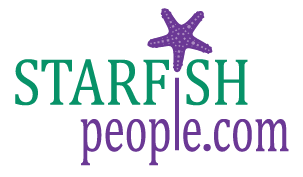The new National Minimum Wage / Living Wage rates come into effect in April.
The National Minimum Wage (NMW) is the minimum pay per hour most workers under the age of 25 are entitled to by law.
The government’s National Living Wage (NLW) is the minimum pay per hour most workers aged 25 and over are entitled to by law.
New rates from 1st April 2019
- £8.21 per hour for ages 25 and over.
- £7.70 per hour for ages 21 to 24.
- £6.15 per hour for ages 18 to 20.
- £4.35 per hour for school leaving age to 17.
- £3.90 per hour for apprentices.
The rate will depend on an individual worker’s age and if they are an apprentice. If you get it wrong not only is it unfair to an employee the HMRC (HM Revenue & Customs) can also take employers to court for not paying the NMW. The new rate will apply to the next pay reference period that begins on or after the date:
- a rate increase begins
- an employee reaches a new age bracket.
For example: an employee paid on the 20th of each month will start to receive the new rate of minimum wage from 21 April onwards.
If a worker receives above NMW there is no legal obligation on an employer to increase their pay when the NMW rate increases.
Are there any exceptions to this ?
Simple answer yes, there are a number of people who are not entitled to the NMW or NLW.
The NMW and NLW do not apply to;
Self-employed people
Volunteers or voluntary workers
Company directors
Members of the armed forces
Family members, or people who live in the family home of the employer who undertake household tasks
Work experience students, depending on the length of their placement.
All other workers including pieceworkers, home workers, agency workers, commission workers, part-time workers and casual workers must receive at least the NMW or NLW.
Some people may need to have adjustments made to their NMW if they live in accommodation which is linked to their employment or owned by their employer.
Will your staff’s contract’s of employment cover the changes ?
A contract of employment is an agreement between an employer and employee and is the basis of the employment relationship.
A contract ‘starts’ as soon as an offer of employment is accepted. Starting work proves that you accept the terms and conditions offered by the employer.
Most employees are legally entitled to a Written Statement of the main terms and conditions of employment within two calendar months of starting work. This should include details of things like pay, holidays and also working hours.
An existing contract of employment can only be varied with the agreement of both parties.
You may assume that a contract of employment consists of only those things that are set out in writing between an employer and an employee. It’s true that many of the main issues, such as pay and holidays, are usually agreed in writing.
However contracts are also made up of terms that have not always be been documented.
Why is this ?
It could be because they are;
Too obvious to mention: for example, you would not expect a contract to say that ‘an employee will not take products that belong to there employer’
Someone in your team employed to drive, therefore an assumption is made that they will have a valid driving license.
Bottom line its always best to put a contract in writing – it saves a lot of potential misunderstanding in the long run.
Starfish People undertake regular HR Audits. We see these as a vital means of avoiding legal and/or regulatory liability that may arise from insufficient HR policies and practices.

In addition to identifying areas of legal risk, our audits are designed to provide information about current HR strategies.
It’s also an opportunity to assess what’s being done correctly, as well offering advice as how things might be done differently, more efficiently or at a reduced cost.
In today’s competitive environment
Who do you turn to for reliable advice when you have a difficult HR issue, and how much time will you invest in finding the right answer?
At Starfish People, our Outsourced HR consultancy service is here to help. We work alongside you providing expert specialist advice, support and guidance and access to your own HR consultant, either as the need arises or as part of an ongoing service. We provide a clear and professional outsourced HR consultancy service tailored to meet your needs and budget.
We aim to make a difference by taking care of our client’s human resource needs allowing our clients time to focus on their business.
Our HR Services include but are not limited to
- HR Outsourcing – We are there to support you in managing the people-related functions within your company.
- Consultancy for recruitment and selection – Help to recruit the correct candidate from job role assessment through to making the job offer.
- Employment contracts, terms, and conditions
- HR policies and procedures – Rules of conduct for your business to encourage a healthy working environment.
- Employee handbooks – A resource designed to keep your employees informed and on track, to help your business run smoothly.
- Staff appraisal strategies
- Consultancy for disciplinary cases, investigations, grievance and appeal proceedings – Professional advice and documentation to help guide you through the process and ensure compliance with your legal obligations.
Customised business training and coaching programmes – Regardless of company type or size, our tailor-made business training programmes are designed to make your employees more productive.- HR audits and healthcare – An objective review of your current HR policies.
- Attendance management – Encouraging a clear, concise and consistent communication of attendance policies and procedures for a more contented workforce.
Are you looking to understand more about Outsourcing your HR to improve efficiency? – We are here to support you in managing all people-related functions within your business.
You can contact us by filling out the secure contact form, or send us an email [email protected] or call us on 01243 607357



